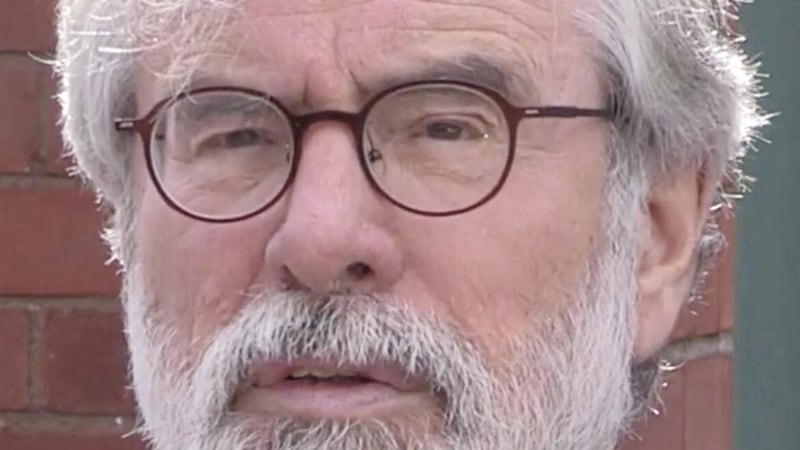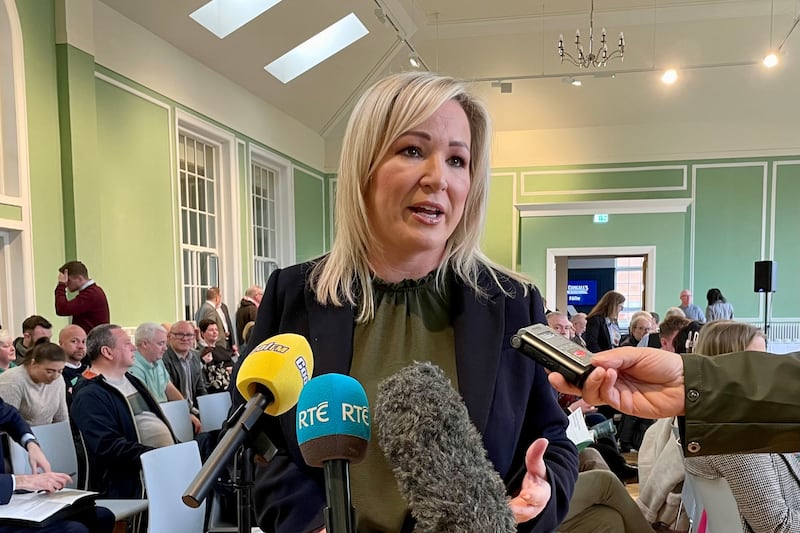GERRY Adams has praised the bravery of David Trimble during the period leading up to the signing of the Good Friday Agreement.
The former Sinn Féin president told BBC NI Talkback that his realisation came following the death of Sir David following his death last year at the age of 77.
Mr Adams was speaking ahead of next month's 25th anniversary of the Good Friday Agreement.
The former West Belfast MP said that following Mr Trimble's death, his thoughts on the unionist leader's stance during the peace process changed.
Mr Trimble led the UUP during the talks process leading up to the Agreement's signing in 1998, but faced opposition from the DUP and members of his own party, including Jeffrey Donaldson, who would later join the DUP and eventually become its leader in 2021.
"Because we were so busy managing our own house, it was only when David Trimble died, and I saw some of the footage of him speaking at unionist meetings and other meetings with unionist folk that I realised how brave he was in arguing as he was arguing," Mr Adams said of the late UUP leader, whose role led to him being awarded the Nobel Peace Prize alongside the SDLP's John Hume six month after the agreement was signed.
Meanwhile, the veteran republican also claimed during the interview that without the peace process and the signing of the Belfast Agreement, the Provisional IRA could have remained active "forever".
The paramilitary organisation called its first ceasefire in 1994, before it returned to violence with the Canary Wharf bombing in London in 1996.
A second ceasefire was called in 1997 ahead of Sinn Féin joining all-party peace talks that led to the Good Friday Agreement a year later.
"As we continued to try and figure out how we would make progress, we started to examine, to explore, the word 'peace'," Mr Adams said.
"I was engaged in constant political debate. We moved, if you like, from resistance into change, so we tried to start to figure out how we would get the thing we were for, and we realised we couldn't do it on our own, and we realised that the IRA could have continued forever, because it had the base of support it had, and it had the capacity."
He added the IRA campaign would have carried on as long as the group "deemed it necessary" and without the "initiative taken to present the alternative".
The 74-year-old was also asked if he believed he would see a united Ireland in his lifetime.
"There will be various phases of transition. We will end up living in a new, agreed Ireland."
He added: "I don't know if I will live until I'm 100, but I would like to think that if I live long enough that I will grow old in a free, united Ireland."







